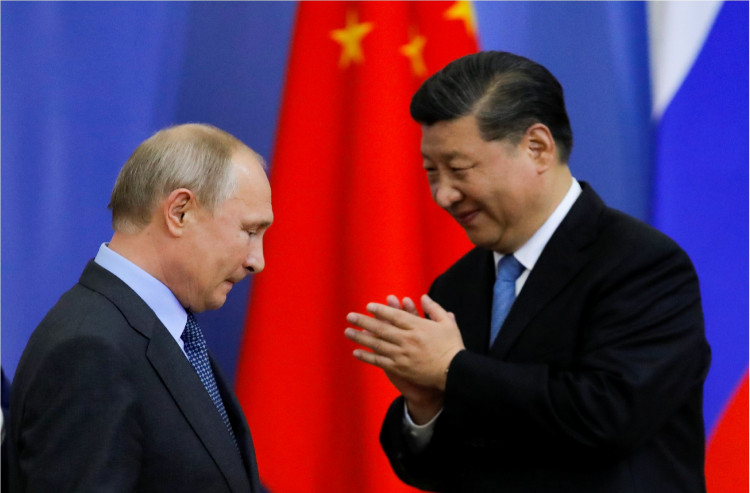During a recent meeting between Chinese President Xi Jinping and Russian President Vladimir Putin, a new agreement was signed, signifying the dawn of a "new era" in their strategic partnership. Both leaders called for "responsible engagement" to bring an end to the conflict in Ukraine.
Xi's visit to Russia came under fire, particularly from U.S. Secretary of State Antony Blinken, as it took place just days after the International Criminal Court issued an arrest warrant for Putin. Despite the criticism, the Chinese leader announced that the two countries had signed a statement to further deepen their strategic partnership and bilateral ties.
Putin emphasized that economic cooperation with Beijing was a top priority for Russia, and declared that all necessary agreements had been reached. The meeting between the two leaders served to solidify the "no limits" alliance they announced in February last year, shortly before Russia invaded Ukraine.
Regarding the situation in Ukraine, Xi stated that China is guided by the principles of the United Nations and supports a peaceful resolution. He emphasized China's commitment to peace and dialogue, while Putin argued that a peace agreement could be built on a Chinese proposal, although he acknowledged that Kyiv and the West were not yet ready for such an agreement.
China's 12-point plan for a de-escalation and ceasefire in Ukraine has been met with skepticism due to its lack of specifics and Beijing's refusal to condemn Russia's invasion of Ukraine. The United States has dismissed the plan, arguing that a ceasefire would merely solidify Russia's territorial gains and give Putin's forces time to regroup.
In response to the meeting, the White House criticized China's stance as not truly impartial and urged Beijing to exert pressure on Russia to withdraw from Ukraine's sovereign territory, thereby ending the conflict.
Following their meeting, Putin praised the growing economic, energy, and political ties between China and Russia, while Xi reiterated China's "neutral posture" on Ukraine and commended his "open and friendly" discussions with Putin. He also advocated for further communication and dialogue. Though Kyiv has welcomed China's diplomatic intervention, it has stressed the importance of Ukraine's territorial integrity and called for the withdrawal of Russian troops.
The deal also advanced the Power of Siberia 2 pipeline, which would transport 50 billion cubic meters of natural gas annually from Russia to China via Mongolia. As Moscow seeks to pivot away from Europe as its primary gas consumer, the need for the pipeline has increased.
According to Russia's news agency TASS, the two leaders also discussed the internet, voicing their opposition to the militarization of information and communication technologies, and supporting the creation of a multilateral, equal, and transparent global management system for the internet.
During a formal dinner after the talks, Putin lauded the "prosperity" of the Russian and Chinese people, highlighting the "infinite potential and prospects" for collaboration between the two nations. Xi's official visit provided a significant boost for Putin as he faces challenges from what he perceives as a hostile West determined to inflict a "strategic defeat" on Russia.
Coinciding with Xi and Putin's meeting, the Japanese Prime Minister made a rare, unannounced visit to Kyiv. This gesture underscored Tokyo's support for Kyiv in its struggle against Russia's invasion and highlighted the complex international dynamics at play in the ongoing conflict.
The strengthened alliance between China and Russia signals a new chapter in their relationship, with both nations committing to deepening their strategic partnership and bilateral ties, even as they navigate the ongoing crisis in Ukraine. Their collaboration highlights the shifting global balance of power and raises questions about the future of international diplomacy and conflict resolution.





